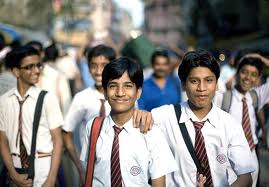Study says grace marks may damage SSLC exam credibility
01:25AM Wed 17 Jul, 2013

 Bangalore: A study of secondary and pre-university education sectors in the State by a forum of retired senior officers of the education department has recommended comprehensive reforms in the SSLC examination system, including doing away with the present practice of awarding grace marks.
The detailed and critical study done by the Forum of Karnataka Retired Education Officers (F-Kare) for Karnataka Evaluation Authority (KEA), an autonomous body set up by the State government to improve the efficiency of public programmes, is under the active consideration of the Education department.
The report points out the mismatch between baseline learning achievement studies done by the Karnataka State Quality Assurance Organisation (KSQAO) and the actual SSLC results.
High performance
While KSQAO studies done on class nine students showed that the average achievement level, taking into consideration the quality parameter, was around 50.43 per cent, the same students achieved 78 per cent results in their SSLC exam a year later.
"One of the reasons for the high performance in SSLC examination is the gracing policy followed by the Karnataka Secondary Examination Board,” the report notes.
Over the years, there has been an improvement in SSLC examination results from 54.65 per cent in 2003 to 80.79 per cent in 2011.
The present gracing system came into existence when the SSLC results, on an average, were hovering around 50 per cent.
"The gracing system needs to be discontinued before the SSLC examination itself loses its credibility completely,” the report recommends.
The panel has pointed out that the wide variation in the ranking of districts each year in SSLC results suggested that the public examination was not conducted "strictly” throughout the State.
For instance, Kolar district, which ranked 30th in 2010 SSLC examination, secured eighth rank in 2011.
'Reforms needed’
"This shows that there is a serious lacuna in the system and urgent reforms are required,” the 316-page report recommends.
As part of its examination reforms, the forum has suggested a change in the nature of question papers.
The questions should focus on problem solving and reasoning skills and test the ability to apply knowledge learnt in the classroom to real life situations.
Besides, continuous and comprehensive evaluation of learning outcomes should be implemented throughout the academic year in classes eight and nine, the report suggests.
The panel has recommended that the education system in the State should enable students and give them opportunities to succeed rather than eliminate them from the
system.
Bangalore: A study of secondary and pre-university education sectors in the State by a forum of retired senior officers of the education department has recommended comprehensive reforms in the SSLC examination system, including doing away with the present practice of awarding grace marks.
The detailed and critical study done by the Forum of Karnataka Retired Education Officers (F-Kare) for Karnataka Evaluation Authority (KEA), an autonomous body set up by the State government to improve the efficiency of public programmes, is under the active consideration of the Education department.
The report points out the mismatch between baseline learning achievement studies done by the Karnataka State Quality Assurance Organisation (KSQAO) and the actual SSLC results.
High performance
While KSQAO studies done on class nine students showed that the average achievement level, taking into consideration the quality parameter, was around 50.43 per cent, the same students achieved 78 per cent results in their SSLC exam a year later.
"One of the reasons for the high performance in SSLC examination is the gracing policy followed by the Karnataka Secondary Examination Board,” the report notes.
Over the years, there has been an improvement in SSLC examination results from 54.65 per cent in 2003 to 80.79 per cent in 2011.
The present gracing system came into existence when the SSLC results, on an average, were hovering around 50 per cent.
"The gracing system needs to be discontinued before the SSLC examination itself loses its credibility completely,” the report recommends.
The panel has pointed out that the wide variation in the ranking of districts each year in SSLC results suggested that the public examination was not conducted "strictly” throughout the State.
For instance, Kolar district, which ranked 30th in 2010 SSLC examination, secured eighth rank in 2011.
'Reforms needed’
"This shows that there is a serious lacuna in the system and urgent reforms are required,” the 316-page report recommends.
As part of its examination reforms, the forum has suggested a change in the nature of question papers.
The questions should focus on problem solving and reasoning skills and test the ability to apply knowledge learnt in the classroom to real life situations.
Besides, continuous and comprehensive evaluation of learning outcomes should be implemented throughout the academic year in classes eight and nine, the report suggests.
The panel has recommended that the education system in the State should enable students and give them opportunities to succeed rather than eliminate them from the
system.











